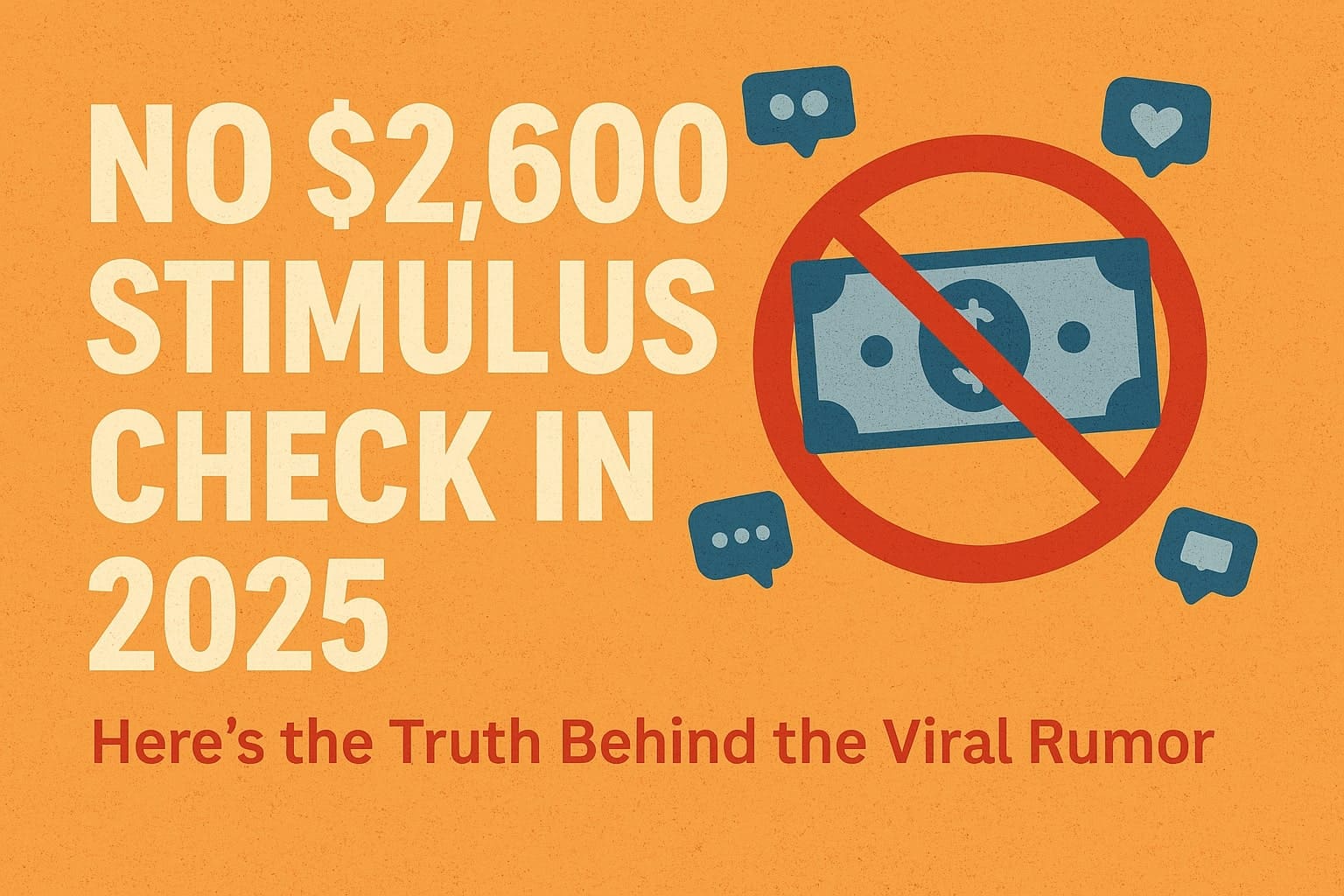If you’ve heard rumors about a $2,600 stimulus check arriving in March or April 2025, you’re not alone. Social media has been buzzing with viral posts, claiming that massive checks are being approved or sent out. But here’s the bottom line:
There is NO official $2,600 stimulus check in 2025, and the IRS and U.S. Treasury have confirmed it.
Let’s break down what’s really going on, how this rumor started, and where you can get legitimate financial help in 2025.
Origin of the $2,600 Stimulus Rumor
The number likely came from: • Confusion over state relief payments
• Tax refunds and credits like the Earned Income Tax Credit (EITC) or Child Tax Credit (CTC)
• Viral misinformation across Facebook, TikTok, and X (Twitter)
Misleading headlines like “$2,600 Check Approved!” get thousands of shares, often without citing any official source.
Official IRS & U.S. Treasury Statement
Both the IRS and U.S. Department of the Treasury have made it clear:
- No $2,600 federal stimulus has been passed by Congress
- No such payment is being processed or mailed
- Any post claiming otherwise is false or clickbait
For a real stimulus to occur:
- Congress must pass a bill
- The President must sign it into law
- IRS handles distribution
There has been no such legislation proposed or signed in 2025.
Real Government Help in 2025
Even though there’s no $2,600 check, here are real programs currently offering financial assistance:
| Program | Eligibility | Max Benefit | Distribution |
|---|---|---|---|
| EITC | Low-to-moderate income earners | Up to $7,430 | With tax refund |
| Child Tax Credit | Parents with dependent children | Up to $2,000/child | March–April 2025 |
| SSI & Social Security | Seniors, disabled, low-income | Varies | Monthly |
| SNAP (Food Stamps) | Low-income households | Based on size | Monthly |
| State Relief | Varies by location | Up to $1,500 | State-dependent |
These programs are verified, legal, and still active in 2025.
Why Do Fake Stimulus Rumors Go Viral?
• Financial stress makes people more hopeful and less skeptical
• Clickbait headlines lure people into false hope
• Social media algorithms amplify misinformation
• Low awareness of how government payments actually work
How to Avoid Stimulus Scams
• Only trust official websites like IRS.gov and Treasury.gov
• Be skeptical of viral posts and videos
• Never share personal info via text, phone, or DMs claiming to be from the IRS
• Talk to a certified tax preparer or financial advisor before taking action
What Should You Focus On Instead?
• File your 2021 tax return before April 15, 2025, if you missed out on the third $1,400 stimulus
• Apply for credits like EITC, CTC, and Earned Income Credit
• Stay updated through official channels and avoid wasting time chasing fake checks
• Monitor state-level relief programs that may offer genuine one-time payments
FAQs: $2,600 Stimulus Check Rumor
Q: Is a $2,600 stimulus coming in 2025?
No. There is no official federal plan or law approving such a payment.
Q: Where did the $2,600 rumor come from?
It spread via social media and confusion with real estate or tax-based programs.
Q: Are there real benefits I can still claim?
Yes – programs like EITC, CTC, SNAP, SSI, and state relief are active in 2025.
Q: How can I avoid scams?
Use official IRS portals, don’t click on viral links, and never share your details unless verified.
Q: Who actually approves real stimulus checks?
Only Congress can propose and pass federal stimulus payments, not social media influencers or websites.
Final Word
We understand how badly many Americans want extra support during rising costs, but don’t let misinformation distract you. There’s no $2,600 federal stimulus check, but there are real programs that could help you get thousands back—legally and securely.
Stay informed. Stay protected. Stick to the facts.


